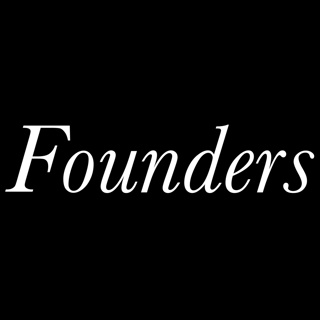
#44 A Memoir by the Cofounder of Microsoft
What I learned from reading Idea Man: A Memoir by the Cofounder of Microsoft by Paul Allen --- I was 21 years old and at loose ends (0:01) how Paul Allen works (4:09) coming up with the idea for Micr...
30 Okt 20181h 22min

#43 Ray Dalio: Principles: Life and Work
What I learned from reading Principles: Life and Work by Ray Dalio --- Whatever success I've had in life has had more to do with my knowing how to deal with my not knowing than anything I know [0:01] ...
22 Okt 20181h 2min

#42 One From Many: VISA and the Rise of Chaordic Organization
What I learned from reading One From Many: VISA and the Rise of Chaordic Organization by Dee Hock --- Walking away at the pinnacle of success was the hardest thing I have ever done (0:01) Through the...
16 Okt 20181h 27min

#41 The Hard Thing About Hard Things: Building a Business When There Are No Easy Answers
What I learned from reading The Hard Thing About Hard Things: Building a Business When There Are No Easy Answers by Ben Horowitz. --- There's no recipe for complicated, dynamic situations [0:01] Meeti...
8 Okt 201859min

#40 Insisting On The Impossible: The Life of Edwin Land and Instant: The Story of Polaroid
What I learned from reading Insisting On The Impossible: The Life of Edwin Land and Instant: The Story of Polaroid --- If you dream of something worth doing and then simply go to work on it, and don’t...
2 Okt 20181h 9min

#39 Walt Disney: An American Original
What I learned from reading Walt Disney: An American Original by Bob Thomas --- He seemed eager to sum up the lessons he had learned and tell people how he applied them in his life. [0:01] He worked l...
24 Sep 20181h 35min

#38 The Space Barons: Elon Musk, Jeff Bezos, and the Quest to Colonize the Cosmos
What I learned from reading The Space Barons: Elon Musk, Jeff Bezos, and the Quest to Colonize the Cosmos by Christian Davenport. --- [0:54] Musk and Bezos were the leaders of this resurrection of th...
17 Sep 20181h 30min

#37 The Fish That Ate The Whale: The Life and Times of America's Banana King
What I learned from reading The Fish That Ate the Whale: The Life and Times of America's Banana King by Rich Cohen. --- When he arrived in America in 1891 at age fourteen, Zemurray was tall, gangly, a...
9 Sep 20181h 21min






















